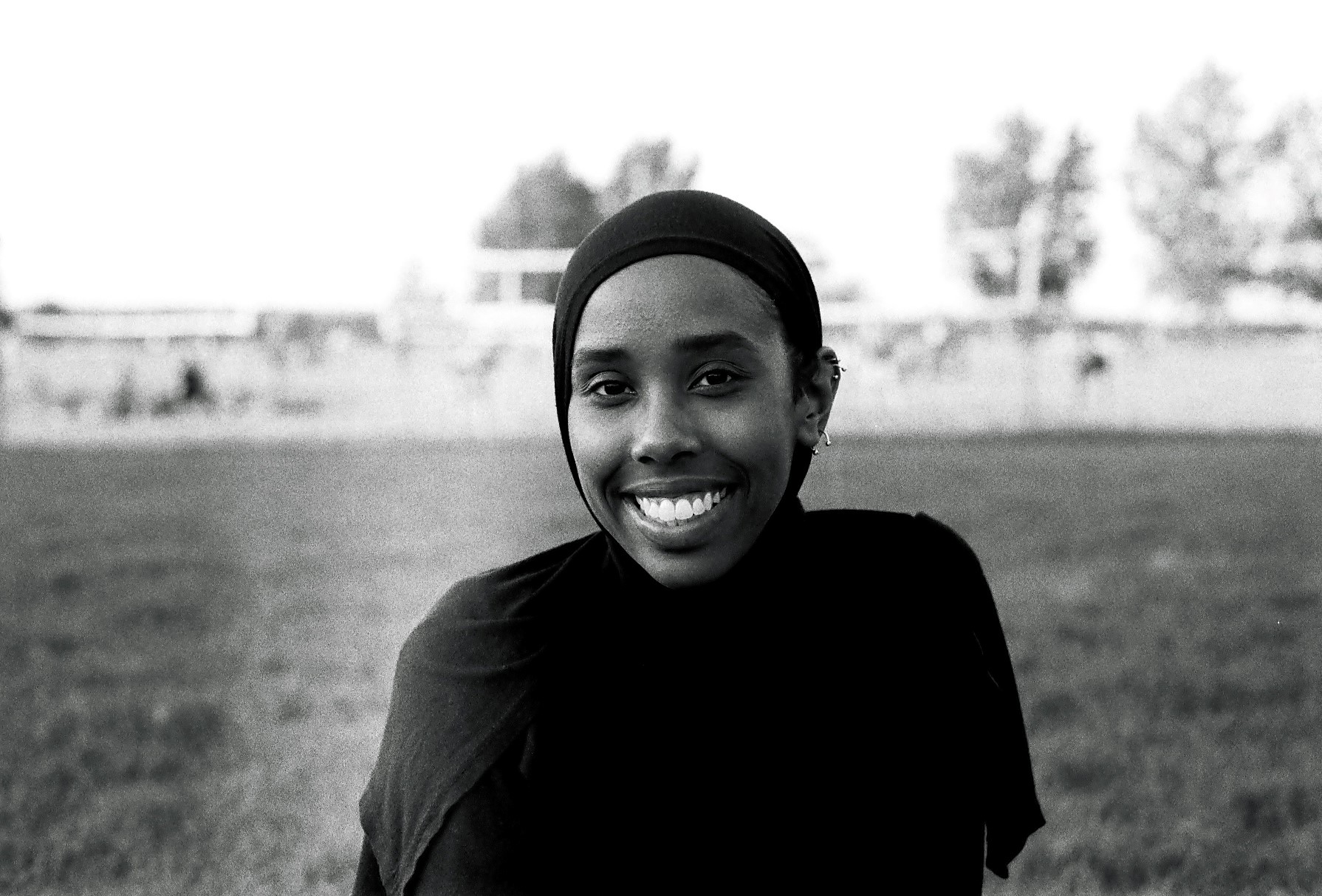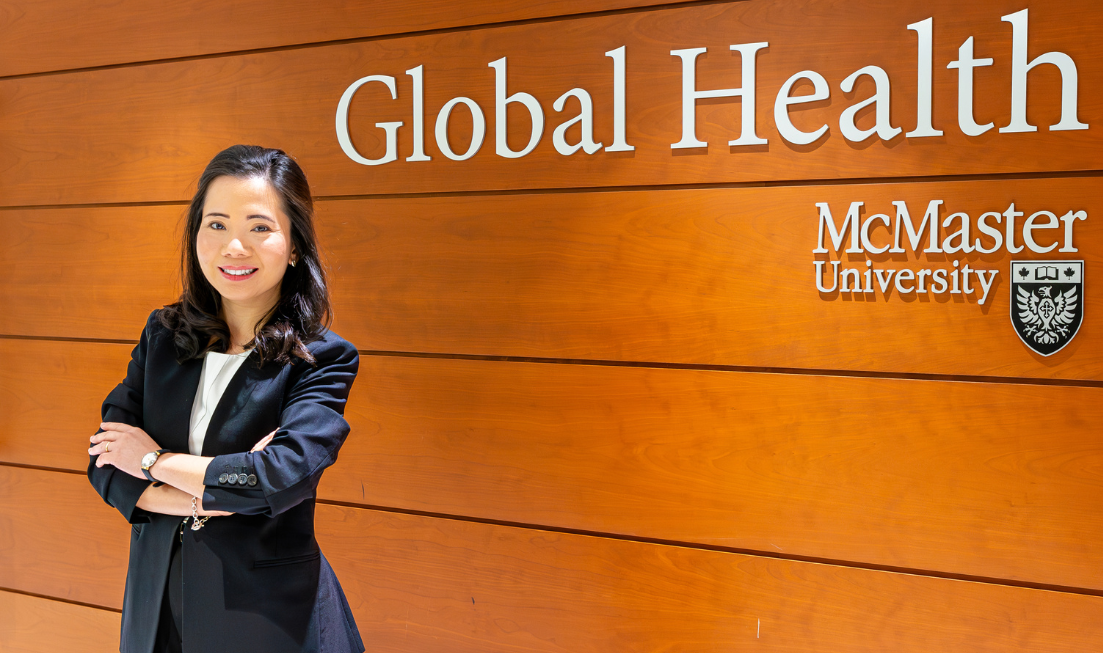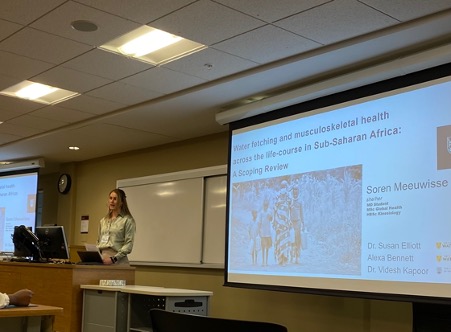Doctoral student receives 2022-2023 IDRC Research Award for Global Health

Building on the success of the international and transdisciplinary Master of Science in Global Health program, the doctoral program in Global Health at McMaster University prioritizes experiential learning, internationalization, and innovation in higher education.
Recently receiving a 2022-2023 International Development Research Center (IDRC) Research Award for Global Health, Ph.D. student Aisha Barkhad, will be entering into her second year in the program this September 2022. As an emerging and innovative researcher, Aisha holds a Bachelor of Science degree in Biochemistry, Microbiology and Immunology, and a Master of Science degree in Epidemiology and Public Health, both from the University of Ottawa.
Centering around the impacts of global change (i.e., migration, land use change, urbanization, globalization, etc.) and climate change, her PhD research focuses on the transmission, risk, and burden of vector-borne infectious diseases (VBIDs; i.e., arboviruses), namely, dengue virus, Zika virus, Chikungunya virus, and yellow fever virus in the Global South. She layers this intersectional research problem, compounded with its ecological, biological, and social rudiments, with an all-encompassing health equity lens that seeks to understand how the world’s most disadvantaged, marginalized, and neglected individuals and populations are bearing a greater burden of arboviral disease risk, rendering them less resilient to environmental impacts and less prepared for disease epidemics.
It is her belief that, “at the nexus of environmental change, global advance, and infectious diseases, there exist policy and program opportunities like no other for equitable, inclusive, and responsive VBIDs control and prevention programs.”
To gain a glimpse into Aisha’s research objectives with the 2022-2023 IDRC Research Award for Global Health and her experience in the program, she provided us with some insight.
How will the IDRC award support your research?
As a 2022-2023 IDRC Research Award Recipient for Global Health, I will receive funding to conduct a qualitative study that endeavours to create an encompassing, visual ‘eco-bio-social’ conceptual framework that recapitulates the interactions between the ecological, biological, and social drivers of dengue virus epidemiology in Latin America, and the unequal health outcomes which they inevitably yield. By collaborating with experts on the ground, and consulting with policy and decision-makers, the goal of the proposed framework is to highlight potential entry points for dengue control and prevention policies and programs, promote public health awareness within Latin American communities, and identify appropriate ecosystem management interventions that may be useful for local and regional governments.
How have your Ph.D. supervisors supported your research and learning?
With assistance and encouragement from my supervisor, Dr. Lawrence Mbuagbaw, and Global Health Program faculty including Drs. Sonya DeLaat, Russell de Souza, and Deborah DiLiberto, I have been provided with the pleasure and privilege of working towards establishing myself within the field of global health as an epidemiologist and doctoral student at McMaster University. My mentors at IDRC, Natacha Lecours located in Ottawa, and Roberto Bazzani located in Montevideo, are supporting and overseeing my IDRC-funded research project.
Do you have any advice for incoming Ph.D. students?
- The road ahead is long and arduous, but by showing gratitude for all that you have overcome in the past, and by bearing patience for what is yet to come, you will find yourself almost seamlessly navigating through even the toughest bits.
- As you make your own way in this world, don’t forsake those who have supported you. Remember that, by relying on others, and letting them rely on you too, you haven’t been a burden, nor are you being burdened.
- Finally, be adaptive to change. Life is unabashedly cruel to those who shut their minds to new ideas and shield their hearts from unique experiences. Pursuing a Ph.D. is best suited for those with malleable hearts and receptive minds, and those most responsive to and accepting of change.
With an aim to propel innovative research and solutions to emerging challenges, Aisha’s research is an example of incorporating global perspectives and engaging in dialogue to facilitate collaboration across communities, borders, and disciplines.
If you want to hear more about Aisha and her research, check out the Critical Global Health: Summer Workshop Series and her talk titled: The epidemic potential of vector-borne infectious diseases in a changing climate: Rethinking vector control and prevention efforts using a health equity lens, taking place on August 5 @ 7 PM
Global Health News, Student and Alumni ProfilesRelated News
News Listing

Health and Humanitarian Implications of War, Crises, and Conflict
Global Health News
November 11, 2024

Daily News ➚
Professor creates innovative training tool to help surgeons save new mothers’ lives
Global Health News
October 31, 2024

A Journey from Research to Advocacy: Global Health Alumna’s Impact on Health Equity
Student and Alumni Profiles
October 17, 2024
